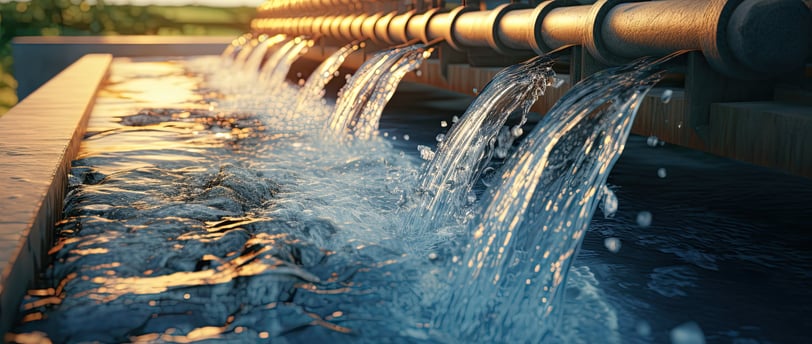Water Conservation Methods
Preserving Our Most Precious Resource
WATER MANAGEMENT


Water, the lifeblood of our planet, is increasingly stretched thin as a result of climate change, surging population numbers, and rampant pollution. In light of these challenges, modern water conservation methods have emerged, designed to promote sustainable water use and effective management. These techniques range from cutting-edge technology innovations to simple but impactful daily strategies, all of which play an essential role in safeguarding our water supply for the future.
Innovative Technologies in Water Conservation
The landscape of water conservation is being transformed by technology, with groundbreaking innovations paving the way for smarter usage and management of this precious resource. Some of the most significant advancements include:
- Smart Irrigation Systems: Harnessing real-time weather data and soil moisture sensors, these systems revolutionize agricultural and landscaping practices by optimizing water application. By adjusting the amount of water delivered based on actual need rather than a fixed schedule, they significantly curtail waste and promote healthy plant growth.
- Desalination Advances: Cutting-edge, energy-efficient desalination methods are now making it feasible to transform seawater into potable water. This technology is particularly vital for arid regions where freshwater sources are dwindling, offering a lifeline for communities facing severe water shortages.
- Water Recycling and Reuse: Greywater recycling systems have emerged as a practical solution for reducing water waste. These systems treat wastewater from everyday activities, such as washing dishes and showering, allowing it to be reused for non-potable purposes like irrigation and toilet flushing, thereby extending the lifecycle of water usage.
- Leak Detection and Smart Water Meters: Equipped with Internet of Things (IoT) capabilities, smart water meters and leak detection devices provide real-time monitoring of water consumption and help identify leaks swiftly. This proactive approach minimizes water loss, enhances efficiency, and ultimately leads to substantial water savings in both residential and industrial settings.
Sustainable Water Management Practices
In addition to technological advancements, effective management practices are crucial for fostering water conservation at both individual and community levels. Some exemplary strategies include:
- Rainwater Harvesting: This method involves capturing and storing rainwater for various non-potable uses, such as irrigation and cleaning. By reducing reliance on conventional water sources, it contributes significantly to sustainable water management.
- Drought-Resistant Landscaping: Commonly referred to as xeriscaping, this landscaping technique emphasizes the use of native and drought-tolerant plants. This approach not only conserves water but also enhances biodiversity and creates resilient gardens that thrive despite water scarcity.
- Efficient Household Water Use: Simple yet effective, adjusting household habits can lead to significant water conservation. Whether it’s installing low-flow fixtures, promptly addressing leaks, or turning off the tap while brushing teeth, every action counts toward reducing overall water consumption.
- Agricultural Water Conservation: Innovative agricultural techniques, including drip irrigation, cover cropping, and soil moisture monitoring, empower farmers to utilize water more efficiently while preserving crop yields. These methods facilitate sustainable farming practices that are vital in the face of dwindling water resources.
The Role of Policy and Community Engagement
The integration of water conservation in our society is heavily influenced by government initiatives and community involvement. Key components include:
- Water-Saving Regulations: By instituting policies that mandate efficient water use practices in construction, agriculture, and industry, governments can foster sustainable behaviors that benefit the environment.
- Public Awareness Campaigns: Engaging communities through educational campaigns about the importance of water conservation can inspire responsible use and encourage lasting behavioral changes among individuals.
- Incentive Programs: Financial incentives such as rebates and tax breaks serve as motivation for homeowners and businesses to invest in water-saving technologies, facilitating a transition to more sustainable practices.
A Collective Effort for a Sustainable Future
The responsibility of water conservation extends beyond the realms of government and industry; it is a shared duty that calls for actions from individuals, businesses, and communities. By seamlessly integrating modern technologies, sustainable behaviors, and effective policies, we can work together to ensure that future generations enjoy a reliable and pure water supply.
